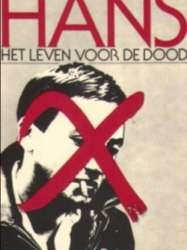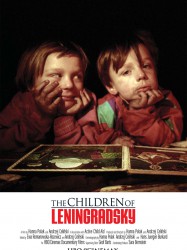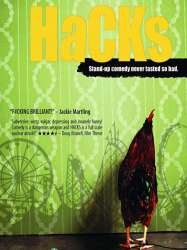The Price of Survival is a film of genre Documentary directed by Louis van Gasteren
The Price of Survival (2003)

If you like this film, let us know!
The Price Of Survival (De prijs van overleven) is a 2003 documentary film by Dutch director Louis van Gasteren and a sequel to Begrijpt U Nu Waarom Ik Huil? (Do You Understand Now Why I Cry?).
The documentary is about the impact of post-traumatic stress syndrome on the family of a Nazi concentration camp survivor named Joop. Joop cannot forget his experiences in a concentration camp during World War II and these emotions are transferred to his wife Dina and their three children. The eldest son and daughter have long since lost contact with their parents and respond in the documentary only by letter. The youngest son Reinier, together with his wife Hadelinde, stayed in contact with his parents. Joop died in 2000, yet the camp experiences are seemingly 'inherited,' as Joop's descendants continue to pay the emotional price of his survival. The Price Of Survival won the Golden Calf for Best Short Documentary at the 2003 Netherlands Film Festival. 56 minutes. Color.
Comments
Leave comment :
Suggestions of similar film to The Price of Survival
There are 4 films with the same director, 8869 with the same cinematographic genres, to have finally 70 suggestions of similar films.If you liked The Price of Survival, you will probably like those similar films :

Beyond Words (1997)
, 28minutesDirected by Louis van Gasteren
Genres Documentary
Themes Documentaire sur une personnalité
The film begins in 1967 with extremely exotic and unusual scenes of a mast (a kind of Sufi God-intoxicated person that Baba worked with), followed by a scene of Baba washing the feet of lepers. Next the filmmaker greets Baba with a bougainvillea branch and proceeds to interview him on God-realization, drugs, and cinema. The film ends with a much older Van Gasteren returning to India three decades later in a reunion with Eruch Jessawala who originally interpreted Baba's gestures. Meher Baba has long died as the now more mature men exchange words and photos. Also in the final scenes, Louis van Gasteren dons a red turban that Meher Baba had given him during their meeting in 1967 and which he had not worn for 30 years. The turban was later donated to the Meher Spiritual Center in Myrtle Beach.
 , 1h2
, 1h2Directed by Louis van Gasteren
Genres Documentary
Themes Medical-themed films, Documentary films about war, Documentary films about historical events, Documentaire sur une personnalité, Documentary films about health care, Films about psychiatry, Films about disabilities, Political films, Documentary films about World War II

Hans, Life Before Death (1983)
, 2h35Directed by Louis van Gasteren
Genres Documentary
Themes Documentaire sur une personnalité
Rating68%






Nema Aviona Za Zagreb (2012)
, 1h22Directed by Louis van Gasteren
Origin France
Themes Films about films, Medical-themed films, Films about drugs, Documentary films about business, Documentary films about the visual arts, Documentary films about the film industry, Documentary films about law, Documentaire sur une personnalité, Documentary films about health care, Autobiographical documentary films
Actors Louis van Gasteren, Michèle Girardon, Nicholas Parsons
As the film opens, a ninety-year-old Louis van Gasteren—a documentary filmmaker and artist famed in the Netherlands—is seated in a video editing suite, watching scenes of himself in the 1960s, a time when “anything was possible.” He reflects on how much he has changed, and that he is that same person and yet is not.

The Children of Leningradsky (2005)
, 34minutesGenres Documentary
Themes Films about children, Documentaire sur une personnalité
Rating77%





A text at the beginning of the film states that since the fall of the Soviet Union, between 1 and 4 million Russian children have become homeless and about 30,000 of them live around the Moscow railway stations. The film follows a group of children between the ages of eight and 14 during their daily lives at Leningradsky railway station. One boy, Misha, says his father didn't accept him as his son so he was brought to an orphanage at age two, Roma who is 12, stabbed his father twice in the stomach because his parents would get drunk and beat him and a 14-year-old girl, Yula, recalls how she was raped at age eleven but her mother accepted money instead of going to court and took to drugs, after which Yula left home. Sergiozha and his brothers seek shelter on the hot-water pipes in the sewers over the winter while others sleep in the trains or in the station. Most of the girls and some of the boys take to prostitution to make money for food, clothes and glue. All them are addicted to sniffing glue, they drink vodka during the day and sometimes sleep in rundown empty houses. A policeman beats a young boy and dumps a bottle of glue over his head and face. The children pick fights with homeless adults whom they despise and call bums. They tell that another child was raped and murdered and how the policemen beat them and held them for 48 hours although they had nothing to do with it. One of the last scenes shows the emotional funeral of a young girl, Tanya, that died from a glue overdose one day before her fourteenth birthday [1]. The film closes with 13-year-old Misha saying "God believes in people and helps them. He loves everyone, even bad people, not just Russians. He even loves Chechnyans. But most of all, He loves children.
 , 1h32
, 1h32Genres Documentary, Musical
Themes Films about music and musicians, Documentary films about music and musicians, Documentaire sur une personnalité, Musical films
Actors Jeff Tweedy, Fred Armisen
Rating73%






How to Draw a Bunny (2002)
, 1h30Origin USA
Genres Documentary
Themes Documentary films about the visual arts, Documentaire sur une personnalité
Rating73%






Horns and Halos (2002)
, 1h30Directed by Michael Galinsky
Origin USA
Genres Drama, Biography, Documentary
Themes Films about writers, Documentary films about historical events, Documentaire sur une personnalité, Documentary films about politics, Political films
Rating71%






Hacks (2002)
, 1h33Directed by Glenn Rockowitz
Origin USA
Genres Comedy, Documentary
Actors Jim Gaffigan, Michael Rispoli, Victor Varnado, Glenn Rockowitz
Rating56%





The story revolves around bad stand-up comedy performances by Jim Gaffigan, Michael Rispoli and Victor Varnado. The unlikely band of comics travel to a comedy and poultry festival in the country to exercise their art. Later, a follow-up gives a summary of how everyone has progressed since appearing at the festival, with differing levels of success. On the commercially released DVD (approx 83 minutes running time), the outtakes section runs in tandem with the credits for around 5 minutes.
 Connection
Connection
